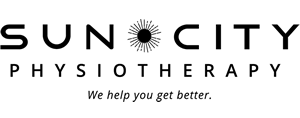TMJ Dysfunction Part 2
Argh! You woke up with another headache, and your teeth hurt from clenching yesterday at work, as you just met another stressful deadline. As you massage your temples and face, which actually feels relieving, your significant other tells you about your loud teeth grinding last night. As you look in the mirror while brushing your teeth, you are always intrigued by how your jaw “wiggles” side to side when you open your mouth. It’s done that for years but hasn’t created any other problems to your jaw function. Sound familiar? You are presenting with Myofascial Pain Dysfunction (MPD) of the Temporomandibular Joint, the TMJ.
The TMJ is the ball and socket joint that connects the Mandible (jaw bone) and the Temporal bone (one of the bones of your skull). It’s the small joint located in front of your ear. There is a cartilage cushion in between the ball and socket, referred to as the Disc. The disc is supported by special Ligaments, which keep the disc in place. Movement problems of the disc can be responsible for creating many symptoms in the TMJ, such as clicking, crepitations, locking, muscle spasm, and pain. There are several muscles which support and control movements of the TMJ. Symptoms can often be related to these muscles. These include temporal pain, headaches, muscle spams, tinnitus and ear pain, and even teeth pain.
TMJ Disorder/Dysfunction, or TMJD/TMD, is seen more commonly in women than men. There is a 3:1 incidence in females to males, and can include one or both jaw joints. In most instances, the dysfunction is a result of an imbalance or change in the normal function of the bones, ligaments, muscles, disc, or nerve components of the TMJ complex.
MPD can be due to various causes of increased muscle tension and spasm. In some instances, MPD can be a physical manifestation of psychological stress. Often, there is no disorder of the joint itself. There is often a history of facial pain and temporal headaches, secondary to Nocturnal (night time) jaw clenching and Bruxism (teeth grinding). Dental issues may have influenced symptoms over time. This might have lead to the use of a nighttime splint. There may also be ear pain, fullness, or tinnitus. Erratic movement patterns of the jaw during opening and closing are related to lack of neuromuscular control, which requires re-education through physical therapy.
The TMJ specific muscles involved in MPD are the Temporalis and Masseter. The temporalis is a fan-shaped muscle that fills the temporal space, and inserts onto the mandible. Its function is to raise the mandible to close your jaw. The masseter is a thick and strong muscle attached at your cheekbone and runs to the angle of the mandible. Its function is to also raise the mandible to close your jaw. Try this: clench your teeth several times and press your fingers firmly on your temples; now on your cheeks. Did you feel tenderness? Aching? Maybe even a sensation like a toothache? WHAT IS THE SIGNIFICANCE? These muscles become subjected to fatigue and overuse with prolonged and persistent clenching and bruxism, which leads to MPD symptoms. It’s like these muscles are running a marathon without rest, everyday!
Proper assessment, diagnosis, and successful treatment rely on a skilled physical therapy practitioner, with expertise in TMJ management. Treatment of MPD is focused on desensitizing muscles through hands-on mobilization, restoration of normal functional movement pattern through exercise, and providing education regarding prognosis and self applied maintenance. Treatment may also include other muscle re-education techniques such as Intramuscular Stimulation (IMS). We look at other mechanical influences such as neck disorder and posture, to assist in maximizing treatment management. At times, we often work with your oral practitioner (dentist, orthodontist, oral surgeon), and other practitioners who deal with behavioural modification, to optimize results.
Vince Cunanan is a TMJ Specialist and registered physiotherapist and associate at Sun City Physiotherapy Downtown Kelowna. He can be contacted at downtown@suncityphysiotherapy.com.
